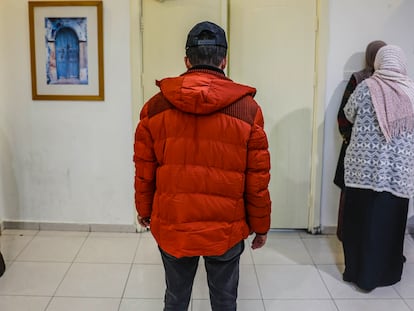Malawi aids Israel by sending agricultural workers during the Hamas war
Opposition parties and human rights organizations are questioning the agreement to send 5,000 people due to concerns about risks and lack of transparency
On November 25, a group of 221 young workers from Malawi departed for Tel Aviv, from where they would disperse to work on Israeli farms. Israel’s Ministry of Agriculture and Rural Development said in early November that the war with Hamas has significantly affected the country’s agricultural sector after thousands of foreign workers left the country. Given the limited employment prospects in Malawi, which ranks as the fourth poorest country globally according to the World Bank, the African nation has forged a partnership with Israel to provide farmworkers.
“We’re thinking of initially sending around 5,000 people,” said Malawi’s Information Minister, Moses Kunkuyu in a recent BBC interview. Amid a foreign currency crisis, the people of Malawi are also grappling with soaring prices and rampant inflation. Malawi’s Labor Secretary Wezi Kayira says it has been exporting labor to countries like Israel for a long time since it creates jobs for the country’s youth and generates foreign exchange.
They pick us up on buses every morning and we go to work on nearby farms and fields. We are aware of the tough situation in Gaza, but we feel safeMalawian farmworker in Israel
“A portion of their wages will cover living costs in Israel, while the remainder will be remitted to personal accounts here in Malawi to boost foreign exchange,” said Kayira in a statement shared with the media.
EL PAÍS chatted on WhatsApp with a young man from Malawi who has been working on a farm in northern Israel picking and packaging fruit. He prefers not to share personal details or where he is living in Israel. “They pick us up on buses every morning and we go to work on nearby farms and fields,” he said. “We are aware of the tough situation in Gaza, but we feel safe.” He said laborers from Malawi have arrived on three flights so far, with the most recent one on November 25. He estimates that around 350 Malawians have arrived as of now. “We’re spread out in different locations — some of us work on livestock farms, while others pick vegetables.” The young man tells this newspaper that he came to Israel to earn money so he can pursue his education. “The economic situation in my country is very difficult.”
The labor-export agreement follows Israel’s recent $60 million aid package to support Malawi’s economic recovery. The country’s growth has stagnated amid macroeconomic imbalances that continue to deteriorate, according to the International Monetary Fund (IMF).
Malawi President Lazarus Chakwera has been criticized for the potential risks the agreement imposes on Malawian citizens traveling to conflict zones, as well as the lack of transparency surrounding its negotiation. “Sending people to a war-torn country like Israel, where some countries are withdrawing their labor is unheard of,” Malawian opposition leader Kondwani Nankhumwa told the BBC’s Newsday program.
Habiba Osman, executive director of the Malawi Human Rights Commission, is concerned about the secrecy surrounding the agreement. “The government did not provide any prior information even though transparency is their obligation. We still lack information about this agreement between Israel and Malawi. Our aim is to ensure there are no human rights violations,” said Osman, who noted that another Israeli plane landed at Lilongwe International Airport airport on November 28 and is still there.
Sending people to a war-torn country like Israel, where some countries are withdrawing their labor is unheard ofMalawian opposition leader Kondwani Nankhumwa
Safe environments and decent wages
In addition to security concerns, opposition and humanitarian organizations worry about the working conditions for Malawian citizens in Israel. In 2015, Human Rights Watch reported abuses towards foreign agricultural workers in the country. However, Minister Kayira said, “The deployed youth will work at certified and approved locations, which are classified as fit and safe environments with medical insurance and repatriation arrangements for the youth involved.”

Malawians have expressed interest in working in Israel since the initiative became public, and government recruiters have fanned out across the country to explain the details and contract conditions. The Times of Malawi reported that a recruiter based in Lilongwe conducted a meeting at Chiwoko Primary School and told the job seekers “they were going to Israel for fruit picking and the treatment of plants and vegetables, mainly in greenhouses. The contract is for three years of working eight hours a day, and the salary will be $1,500 per month.”
Malawi and Israel established diplomatic relations in 1964, which have remained intact even after other African nations cut ties after the 1973 Yom Kippur War. In 2020, Malawi expressed its intention to become the first African country to open an embassy in Jerusalem, a significant diplomatic decision that has yet to be finalized. Most countries maintain their embassies in Tel Aviv, as they do not recognize Israel’s sovereignty over eastern Jerusalem, which it occupied in 1967. They believe the status of this holy city should be subject to negotiation for a just and peaceful resolution between Israelis and Palestinians. The United States relocated its embassy to Jerusalem in 2018 during the Trump administration.
Sign up for our weekly newsletter to get more English-language news coverage from EL PAÍS USA Edition
More information









































